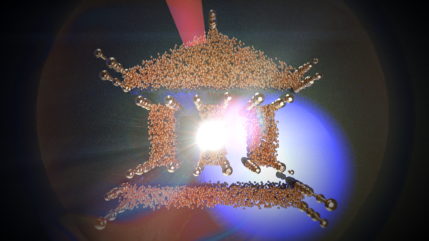“The manner of giving is worth more than the gift.”
Pierre Corneille (1606 – 1684)
There are some occasions in the year where our thoughts naturally turn to present buying and what we can give our loved ones. Effective use of gift allowances and reliefs can represent a generous gesture to your family, whilst potentially reducing the liability to future taxation on your estate.
As a parent I recently read an article which focussed on the various views of parents and grandparents when it comes to limiting the amount given at Christmas to children and grandchildren. This particular article discussed the merits and drawbacks of limiting gifts to four specific gifts and it got me thinking about four reliefs and exemptions for estate planning that enable “exempt” gifts to be made whatever the time of year. The appeal with making exempt gifts is that they fall immediately outside the donor’s estate for Inheritance Tax (IHT) purposes and as such the usual seven year waiting period does not apply.
1. The Annual Exemption
Each tax year £3,000 can be given away by an individual. In addition, it is possible to carry forward any unused part of the £3,000 exemption to the following tax year. For married couples/civil partners who have not made gifts in this or the previous tax year this could enable £12,000 to pass free of tax now with a further £6,000 on 6th April 2017.
2. Exemption on Small Gifts
In any tax year, you may gift up to £250 to any number of individuals free of tax.
3. Gifts in Consideration of Marriage
Currently parents are able to gift £5,000, grandparents and great grandparents can each give cash or gifts worth £2,500 and anyone else can give cash or gifts worth £1,000. This exemption applies to each individual so a married couple could gift a total of £10,000 to their child upon their marriage, for instance. This gift must be applied before the annual exemption.
4. Gifts Out of Income
If you have substantial income, whether derived from taxable savings & investments, earnings or pensions, you can make significant reductions to your potential IHT liability by making gifts out of income. Unlike most tax exemptions and reliefs, this exemption provides relief that is unrestricted. As this relief is not subject to an upper limit, effectively the only limiting factor is your own personal circumstances.
I want to focus on Number 4 as I feel it potentially has the largest benefit and is often under used.
Under current gifts out of income rules, a gift will benefit if, or to the extent that, it complies with certain conditions as below:
- The gift forms part of the normal expenditure of the transferor (i.e. payments in respect of the gift are regular or habitual). Regular or habitual doesn’t necessary mean monthly or quarterly but I would suggest at least annually
- Taking one year with another the gift is made out of income (not capital). It’s usually appropriate to make the gift from the current or bank account which receives your pension and or/earned income and savings income so it’s clear that such gifts have not been made from capital.
- After allowing for all transfers of value forming part of one’s normal expenditure, the transferor is left with sufficient income to maintain a normal lifestyle (please see Norman’s example below)
It is important that all three of these tests are satisfied separately and this will be dependent on each individual’s own personal circumstances.
Some potential uses of this exemption could be:
- Paying regular premiums to an investment or life assurance policy written in trust.
- Paying a grandchild’s education fees.
- Funding a child or grandchild’s ISA or Junior ISA (JISA).
- Funding a child or grandchild’s pension.
- Helping a child or grandchild with their mortgage payments.
Example
Norman has total net income, after tax, of £50,000 which is derived from pensions and investments. He accumulates a sum of £1,500 monthly after his living expenses are taken care of. Norman decides to gift £500 every month to each of his 2 children. As the gifts form part of Norman’s regular expenditure, are habitual and unconditional, it is a reasonable conclusion to draw that these gifts satisfy the above tests.
The exemption is claimed retrospectively by the donor’s personal representatives, after they have died, so it is prudent for the donor to maintain a record of gifts made. I would suggest, in the example above that Norman writes a brief letter to both his children confirming the monthly gifts will leave him with sufficient income to maintain his normal standard of living.
In addition to regular gifts out of normal expenditure you can also make exempt maintenance payments to:
- your wife, husband, civil partner.
- your ex-spouse or former civil partner.
- relatives who are dependent on you because of old age or infirmity.
- your children, including adopted children, step-children, who are under 18 or in full-time education.
As always, if there are any questions or if you’d like to speak in more detail about the gift allowances and the opportunities available based on individual circumstances, please contact us for an initial discussion or speak with your Courtiers Adviser.
Please note that tax treatment depends on individual circumstances and may be subject to change in the future.
Happy gift giving!
Best wishes,













